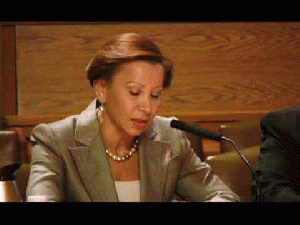Reprinted from Campaign For America's Future
Trouble
Puerto Rico is in trouble. Alfredo Estrada explains the background at The Hill, in "Tough choices in Puerto Rico":
"Since 2006, a severe recession has crippled the island's economy and left a budget deficit of over $20 billion. Puerto Rico has the highest unemployment rate in the nation, above 12 percent, and a poverty rate of 45 percent, higher than any state. Home foreclosures are up 89 percent from 2008, and 20 percent of housing units are empty. Public services have been curtailed because the government has run out of cash, and more than 100 schools and a children's hospital have closed, despite an outbreak of the Zika virus. The island has seen a 10 percent drop in its population over the last 10 years. Over 100,000 left for the mainland last year, causing a brain drain and further depleting the tax base."
The recession forced borrowing to maintain human services. The debt totals around $70 billion. Puerto Rico is already spending a third of its revenue on debt service. They have already trimmed pensions and services. They have reached the limit and need a solution.
There is one big problem with finding a solution through governance, though. Republicans control Congress. Republicans don't do governance and they don't do solutions.
Republican Solution
After much negotiation (and interference from Wall Street hedge funds) Congress has put together a bill called the Puerto Rico Oversight, Management and Economic Stability Act (PROMESA) ("Promesa" is Spanish for "promise").
The legislation sets up an oversight board to restructure Puerto Rico's debt. The oversight board is empowered to restructure Puerto Rico's debt, which can include requiring creditors to accept less than 100 percent of what they are owed. This board will not be subject to any Puerto Rican authority. PROMESA requires its decisions to be the interests of Puerto Rico's creditors.
Puerto Rico has already been through rounds of austerity, cutting human services and laying off public workers, closing schools, increasing the sales tax, and other measures.
But the bill will require more of this. PROMESA lowers the current $7.25-an-hour minimum wage to $4.25 an hour for workers 25 years and younger. Puerto Rico will be exempt from the new overtime rule raising the salary above which people can be made to work more than 40 hours with no extra pay from $23,660 to $47,476. The bill specifically protects creditors before pensions. Measures like this force the people of Puerto Rico to become poorer.
David Dayen writes at Salon, in "Bernie says bail out Puerto Rico: Sanders details how the feds should rescue the territory as they did big banks," explains:
"The oversight board would be able to institute more cuts, supersede local laws, lower the island's minimum wage, and as a last resort institute a court-approved debt restructuring, as long as it is 'in the best interest of creditors.'
"It's hard to see this as anything but a colonization of Puerto Rico. Even supporters of the bill acknowledge that. They see it as the only opportunity for Puerto Rico to avoid disaster by obtaining the ability to restructure its debt, given the makeup of this Congress. Hillary Clinton, who expressed 'serious concerns' about the plan, nonetheless said Friday, 'we must move forward with the legislation.'"
Sen. Bernie Sanders gave a speech on the subject, saying,
(Note: You can view every article as one long page if you sign up as an Advocate Member, or higher).





